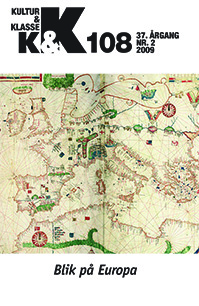Dantes kristne universalisme og islam: Dante og den europæiske identitet
DOI:
https://doi.org/10.7146/kok.v37i108.21995Nøgleord:
Dante, kristen, universalisme, islam, europæisk, identitetResumé
Dante’s Christian Universalism and Islam:
During the years 2001-2004, when the establishment of a Constitution for Europe was on the EU’s agenda, the suggestion to include a reference to the ‘Christian roots’ of Europe in the Constitution’s Preamble lead to an animated debate. Some Italian Catholic intellectuals (Anna Maria Chiavacci, Giuseppe Reale) took part in the debate and used Dante to illustrate the essential significance of Christianity in the European culture, thereby involving themselves in this debate. Referring to T.S. Eliot’s famous quote (»the culture of Dante was not of one European country but of Europe«), they claimed that Dante’s work was one of the greatest expressions of a Christian European cultural identity which took form in the Middle Ages and drew impulse from a synthesis of the two great Mediterranean cultural traditions: the Greek-Roman and the Jewish-Christian; a cultural identity they identified tout court with our present ‘European’ or ‘Western’ culture. It is worth observing that Chiavacci and Reale did not mention in their narrative the third great Mediterranean cultural tradition (especially in the Middle Ages) of Islam and its own likely contribution to the ‘European’ civilization. In my paper, I wish to contribute to the understanding of how Dante represents ‘Europe’ and ‘Islam’ in his work. My suggestion is that in Dante’s work we can neither find an idea of a Europe (or ‘West’) as separated or superior to other continents nor an orientalized image of the Orient as claimed by Edward Said. On the contrary, Dante considers ‘Europe’ as a metaphor for an ideal universal Christian community (with strong eschatological features), that is a community that potentially includes the whole of humanity.
As few other intellectuals in the Middle Ages, Dante’s attitude to Islamic culture is primarily assimilative; he does not include but assimilates Arabian culture and philosophy to the extent that they have contributed to Christian thinking. As a good medieval Christian, Dante is hostile to Islam just because he looks at it as a heretical or schismatic version of Christianity (and therefore assimilated to his own faith), not as ‘another’ religion.
Downloads
Publiceret
Citation/Eksport
Nummer
Sektion
Licens
Tidsskriftet følger dansk ophavsret.





